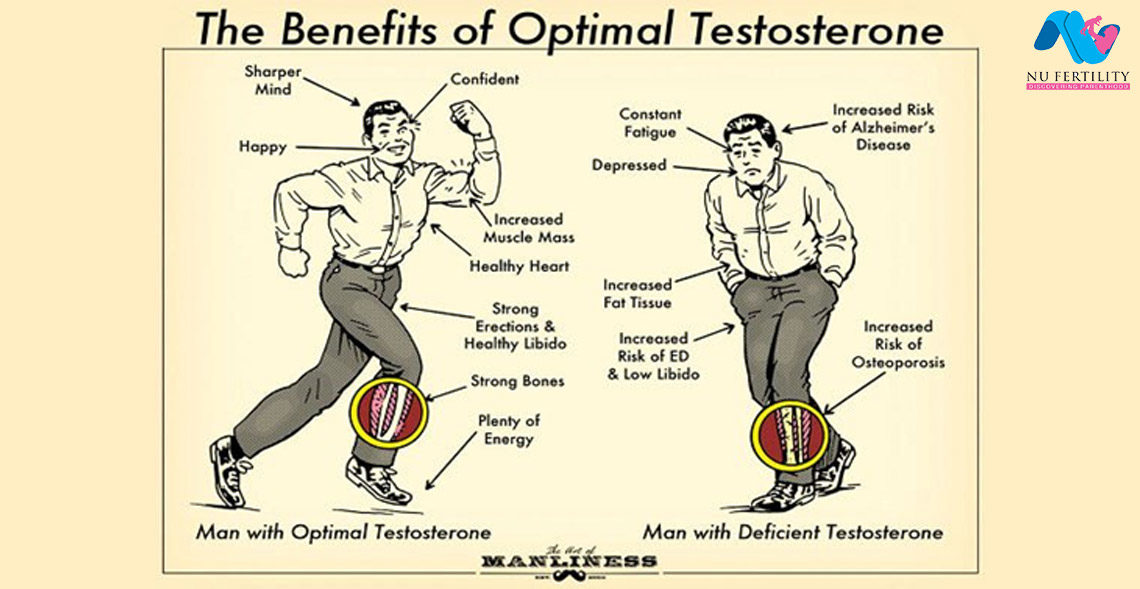
They can identify the underlying cause of hair loss and recommend suitable treatment options. According to Agbai, genetics, hormonal shifts, stress, underlying medical conditions, nutritional deficiencies, and scalp inflammation are notable factors. Understanding the underlying cause of your hair loss is absolutely necessary in determining the best approach to halt and reverse any further damage to your hair and scalp.
What? Another medical form to fill out?
DHT is formed when the enzyme 5-alpha reductase converts testosterone to DHT. “Primary testicular failure is typically due to a problem within the testicles itself,” says Dr. Hakim. Hone-affiliated medical practices are independently owned and operated by licensed physicians who provide services using the Hone telehealth platform. For more information about the relationship between Hone and the medical practices click here. Finasteride (Proscar, Propecia) is an oral, prescription-only medication. It’s documented as having at least an 87 percent success rate in one 2012 study on 3,177 men, with few noted side effects.
Sex Hormones And COVID-19: Does it Explain Men’s Risk of More Severe Illness? - Hartford Hospital
Sex Hormones And COVID-19: Does it Explain Men’s Risk of More Severe Illness?.
Posted: Thu, 27 May 2021 07:00:00 GMT [source]
Can low dose testosterone help treat low libido in females?
There's a link between testosterone therapy and male-pattern balding. Your doctor can talk to you about any side effects of testosterone treatment. Low testosterone is diagnosed by measuring testosterone levels with a blood test.

What should a woman’s testosterone level be?
So rest easy knowing it won’t harm your testosterone levels in any way. If your receptors are highly sensitive, even small amounts of DHT can easily trigger them, leading to increased hair loss. Higher levels of DHT can cause the hair to fall out faster, prolong the growth cycle, and grow in shorter and thinner, according to the National Library of Medicine. The Rock, Vin Diesel, and Jason Statham make bald look good, but plenty of guys are worried about hair loss—and whether levels of testosterone plays a role.
It’s not the amount of testosterone or DHT that causes baldness; it’s the sensitivity of your hair follicles. The AR gene makes the receptor on hair follicles that interact with testosterone and DHT. If your receptors are particularly sensitive, they are more easily triggered by even small amounts of DHT, and hair loss occurs more easily as a result.
Providers also take symptoms into consideration when diagnosing low testosterone. Your body usually tightly controls the levels of testosterone in your blood. Levels are typically highest in the morning and decline through the day. Be sure to work large groups of muscles when you exercise and do some weight lifting, too. Because testosterone helps build muscle, when it gets low, so does your muscle mass and strength. When you work out you don't see the results that you would normally expect from exercise.
Sometimes in primary hypogonadism testosterone levels are within the normal range and gonadotropins are high. Your specialist will help you understand if you need treatment, even with normal testosterone levels. If you have symptoms such as reduced sex drive or erection problems, you should see your healthcare provider.
Fetal development
Some people are more susceptible to these effects of DHT on scalp hair based on variations in their androgen receptor (AR) gene. Androgen receptors are proteins that allow hormones like testosterone and DHT to bind to them. This binding activity typically results in normal hormonal processes like body hair growth. Testosterone supplements can be prescribed for patients experiencing low levels of testosterone and can take the form of injections, a gel, patches, or pellets surgically implanted under the skin.
There are several forms of the androgen, or male sex hormone, testosterone, that are found in the body. People assigned male at birth have higher levels of testosterone naturally than those assigned female at birth, though everyone has some form of testosterone in the body. One type of testosterone is called “free testosterone” and is not bound to a particular protein.
In conclusion, while testosterone itself does not directly cause hair loss, its derivative DHT has been linked to hair loss in individuals with a genetic predisposition to androgenetic alopecia. Men with higher testosterone levels tend to have higher levels of DHT, so it can be argued that higher testosterone levels “indirectly” cause hair loss. Maybe you’ve been considering a vasectomy but haven’t quite finalized your decision yet because you’re worried about the side effects. Or maybe you’ve already been snipped and you’re wondering What if my vasectomy caused my decrease in low testosterone? Wherever you are on that journey to understanding the ins and outs of this simple and potentially reversible procedure, you should know that a vasectomy doesn’t impact your testosterone levels at all. Either way you look at it, there is no proven, scientific evidence of long-term negative effects on testosterone levels from masturbation or sexual activity.
In both males and females, low testosterone can lead to lower bone mass and reduced sex drive. Testosterone is a hormone that can affect appearance and sexual development, stimulate sperm production and sex drive, and help build muscle and bone mass. It is typically produced by the testicles in people assigned male at birth. While testosterone and hair loss isn’t always directly related, there are some correlations between the two, which is why testosterone replacement therapy has become such a popular solution for many men. The first thing to remember is that many times, low testosterone impacts body hair on the chest, arms, legs or around the face, not as much the hair on top of the head.

A person can also take certain supplements to help slow hair loss. However, it is important to discuss supplements with a doctor, as receiving too much of certain nutrients can accelerate hair loss. According to Healthline, other common types of alopecia include traction alopecia, telogen effluvium, alopecia areata, central centrifugal cicatricial alopecia (CCCA), and lichen planopilaris (LPP). The first step to finding out if you have low testosterone is to discuss your symptoms with a knowledgeable medical provider. It would be highly unusual for a mild, subclinical thyroid imbalance to cause this type of diffuse hair loss.
How Testosterone Affects Your Lifespan and Health - Men's Health
How Testosterone Affects Your Lifespan and Health.
Posted: Tue, 28 Mar 2023 07:00:00 GMT [source]
If you are starting to go bald as you age, it can have a serious impact on your look and your confidence. There are many causes of balding and many rumors as to why this balding occurs in the first place. One of the most common questions that men tend to have about their thinning hair is whether or not low T or low testosterone has anything to do with this change. An enlarged prostate is a common condition in men over the age of 50, affecting as many as three million, although many will not realise or need treatment until symptoms, such as frequent urination, develop.
There’s “free” testosterone that isn’t bound to proteins in your body. This is the form of testosterone most available to act within the body. Symptoms of low testosterone can vary considerably, particularly by age.
In people with fewer androgen receptors, a high testosterone or DHT level may not cause hair loss. Scientists believe that some people inherit a variant of the androgen receptor (AR) gene that is more susceptible to the effects of testosterone and DHT on their scalp hair. “Testosterone can contribute to hair loss, particularly through its more potent form, dihydrotestosterone (DHT),” says Hannah Kopelman MD, a dermatologist at Kopelman Hair Restoration in New York, New York. “Testosterone is converted into DHT by the enzyme 5-alpha-reductase,” Dr. Kopelman explains. “This occurs in various tissues, including the scalp.” DHT plays a role in regulating the hair growth cycle and, in some individuals, can contribute to the shortening of the anagen phase.

No comments:
Post a Comment